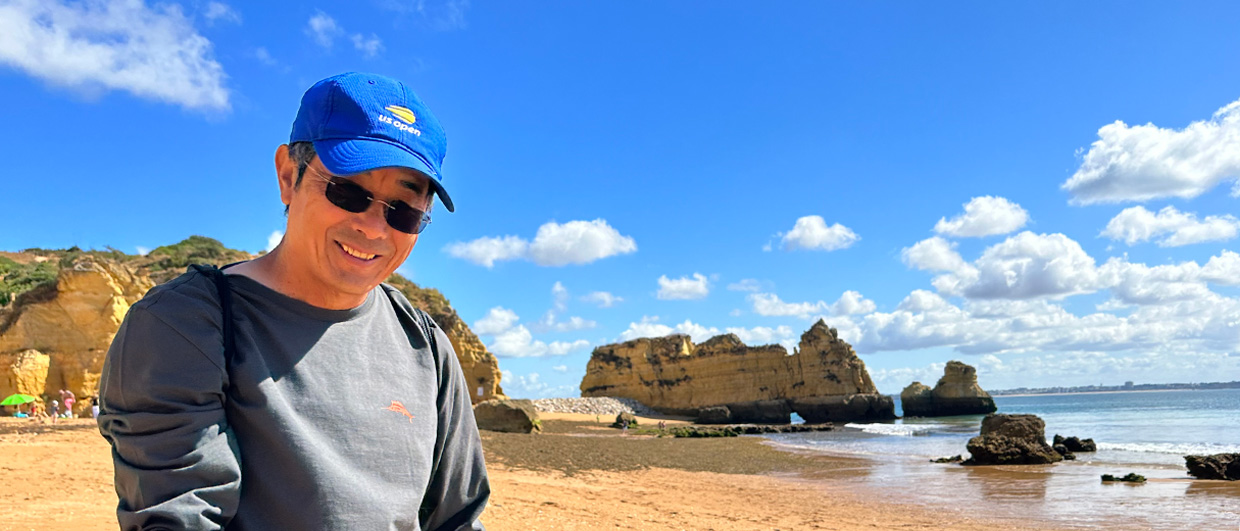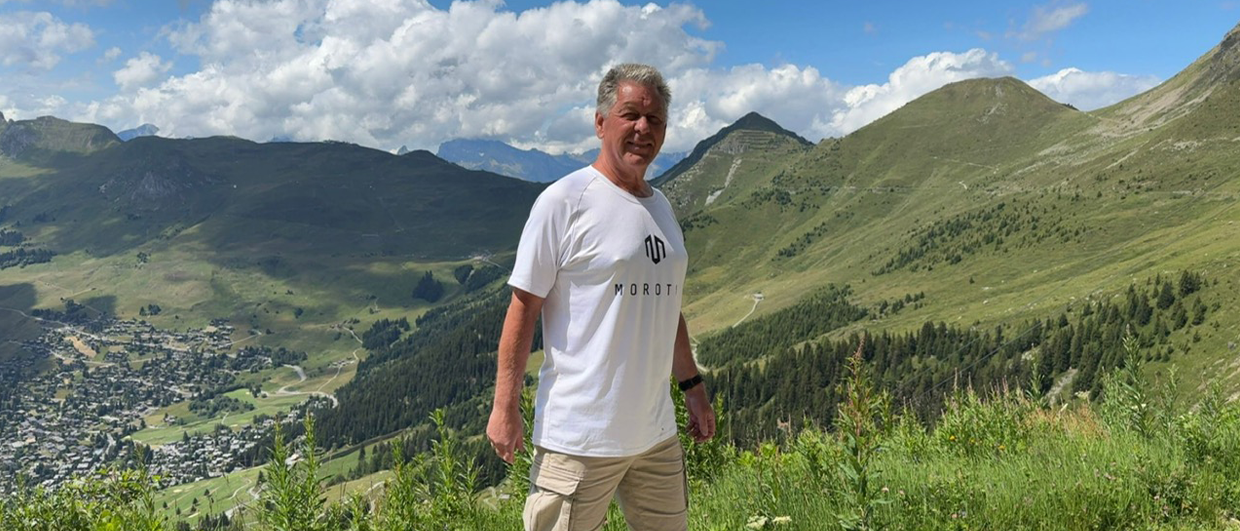The LNG project in Mozambique started with the discovery of huge reserves of natural gas off the northern coast in 2010. This led to a $20 billion final investment decision in 2019, with the project expected to deliver first LNG in 2024. The enterprise will provide a range of social and economic benefits to Mozambique as well as diversifying its economic activities. Following his recent panel appearance at Africa Oil Week Virtual, we talk to Omar Mithá, special advisor to President Nyusi of Mozambique, about the importance of this project to the future prosperity of this emergent regional gas producer.
What was your reaction back in 2010 when you heard that the first-ever deepwater well offshore Mozambique had found substantial reserves of gas?
The deepwater discovery sent a message that Mozambique would fulfil its destiny to be a significant O&G province. This came as no surprise, given the favourable supply and demand dynamics, the projected future growth of the world economy, and most importantly the Asian market when including China and India. At the same time, my mind was haunted by the past experience of the ‘resource-curse’ in other resource-rich countries in Africa.
The first exports of Mozambique LNG are expected by 2022. How important is this for the country and which countries does Mozambique expect to become its primary LNG export markets?
First LNG in 2022 will definitely set a precedent for the future in view of the forthcoming onshore projects. It will primarily impact on exports and the balance of trade, boosting economic growth. In addition, the government take from royalty fees and other forms of taxation, which includes its share held by the National Oil Company ENH, will improve the fiscal situation. The fiscal deficit that has deteriorated since independence will see an improved trend, reinforced by the upcoming large scale onshore projects.
For the country as a whole, the opportunity to link the offshore floating liquefied natural gas (FLNG) with suppliers from onshore and the ability of the regulator to set the proper scrutiny, will improve its state of preparedness to tackle the more complex integrated onshore projects.
With respect to the export markets, the off-taker for the first project is an aggregator, BP. Demand will be led by China and India as they have a strong commitment to reduce carbon emissions. Based on the off-takers from the Area 1 Project, the main buyers are from China, India, Japan and Indonesia which speaks to security of supply in fast growing economies, as well as the need to diversify and reduce the risk from reliance on the Middle East. In this way, Mozambique can position itself to become a leader in the global LNG market.
What are the plans for using gas within Mozambique and how will access to so much local gas affect the Mozambican economy and people?
The future plan includes the use of more gas in the energy mix, which currently is principally supplied by hydro with only one third from small gas fields in southern Mozambique. The plans look into the possibility of adding value by having a domestic industry in fertilisers, gas-to-liquids and other derivatives, as well as power generation. For Area 1, the plan is to supply three selected projects: power generation operated by Great Lakes Africa; fertilisers operated by Yara; and gasto-liquids sponsored by Shell. Delay in gas supply agreements, caused by price fluctuations, will probably undermine progress. Yara has already stated that its breakeven price would not make it possible to establish a feasible venture, while Shell will most likely rethink and redirect resources elsewhere. My opinion is that this is a long-term venture, initially as exports to anchor the LNG projects, followed by domestic gas industries.
Currently, Mozambique is still a small market with underinvested off-takers, unable on their own to make a domestic gas project bankable and induce the upstream oil and gas companies to make a financial investment decision. The options on the table include the possibility of developing new domestic infrastructures, some of which are mutually exclusive. This boils down to the market volumes and credit ratings to ensure financial leverage underpinned by credible off-takers with long-term commitment.
The anchor market that needs gas volumes and has financially strong buyers is South Africa, which would require either a pipeline or a competing re-gas plant. There are plans for the second option, whilst the first one would be a longterm project. In each case, the scenarios carry uncertainty, as our neighbours have their own natural resources, including new gas discoveries in South Africa. On top of that, the lack of a clear vision from each individual country as to which plan to undertake adds commercial risk. Coordination from the Southern Africa Development Community (SADC) could bring consensus on how to integrate the whole system.
For the people in Mozambique, the most important outcome will be the gradual adoption of gas for cooking, alternative fuels for vehicles and reliable power in the energy mix. Population growth and rapid urbanisation will require the country to upscale power generation capacity. In addition, gas implies industrialisation that creates paid employment and the subsequent uplifting of people’s welfare.
It is also important for the government to use the gas revenues for the building of health, education and transportation infrastructure, as well as for economic diversification, and to increase the productivity of labour-intensive sectors such as agriculture, fishing and tourism. This has a positive impact on the majority rural population at the bottom of the pyramid. It will also pave the way for developing the country, as current resources will be depleted by the time of the next generation.
What would you say to environmental activists like Friends of the Earth who want to stop Mozambique from developing LNG projects?
The message is that the Rovuma Basin undertakings involve financial institutions and IOCs that have stringent rules on environmental issues and cannot afford to jeopardise their reputations. Actually, this requirement comes first and independent audits are required. Without compliance to these rules, funding is impossible. The technology to be used is proven and there is a positive track record elsewhere in the world. This is a golden opportunity to transform Mozambique for the better and fulfil the dreams of its citizens. It will create a country without hunger, ensure medical care, and provide decent homes and employment for the young. Those who claim otherwise will undermine the country’s progress, reinforcing its cycle of poverty.
Has Covid-19 had an impact on the country’s LNG plans?
The travel restrictions and quarantine remain a challenge with a negative impact on the works at the site and the drilling campaign. Logistical solutions include initiatives such as ready-to-use camps for housing. Travelling to Mozambique has started again with the proviso that incoming workers present a valid negative test taken in the previous 72 hours. In general, the recession in most countries as a result of the pandemic has weakened the demand for oil and gas which might delay the Rovuma LNG project from Area 4. In addition, the appetite for future rounds of investments in new fields could wane.
Is there potential for further major discoveries of oil or gas?
New bidding rounds could take place, but the timing is unknown. Given the current situation, most major oil companies are facing cash-flow issues and are rethinking their portfolios to rebalance risk. Exploration is a high-risk venture and we might see delays in new exploration. From Mozambique’s perspective, it is in our interest to maintain the momentum with exploration and development, not least because of the energy transition commitments made by most oil majors.
Finally, is Mozambique the world’s next great energy superpower?
Mozambique has massive reserves and is well located to cater for the potential premium Asian markets, placing the country at a sweet spot. Therefore, over the next two decades, Mozambique could become one of the world’s biggest LNG exporters and remain so for the next 30 years.
However, the future is uncertain as to whether the energy transition to renewables will accelerate, with huge implications for gas production globally, but gas could still play a key role for intermittent energy supply.
The idea of relocating energy-intensive industries to Mozambique, as was the case with the aluminium smelter in 2000, remains a possibility for new market creation. The proposal to build an 18,000-hectare Gas City in Palma, in the future Free Economic Zone, is part of the plan.






